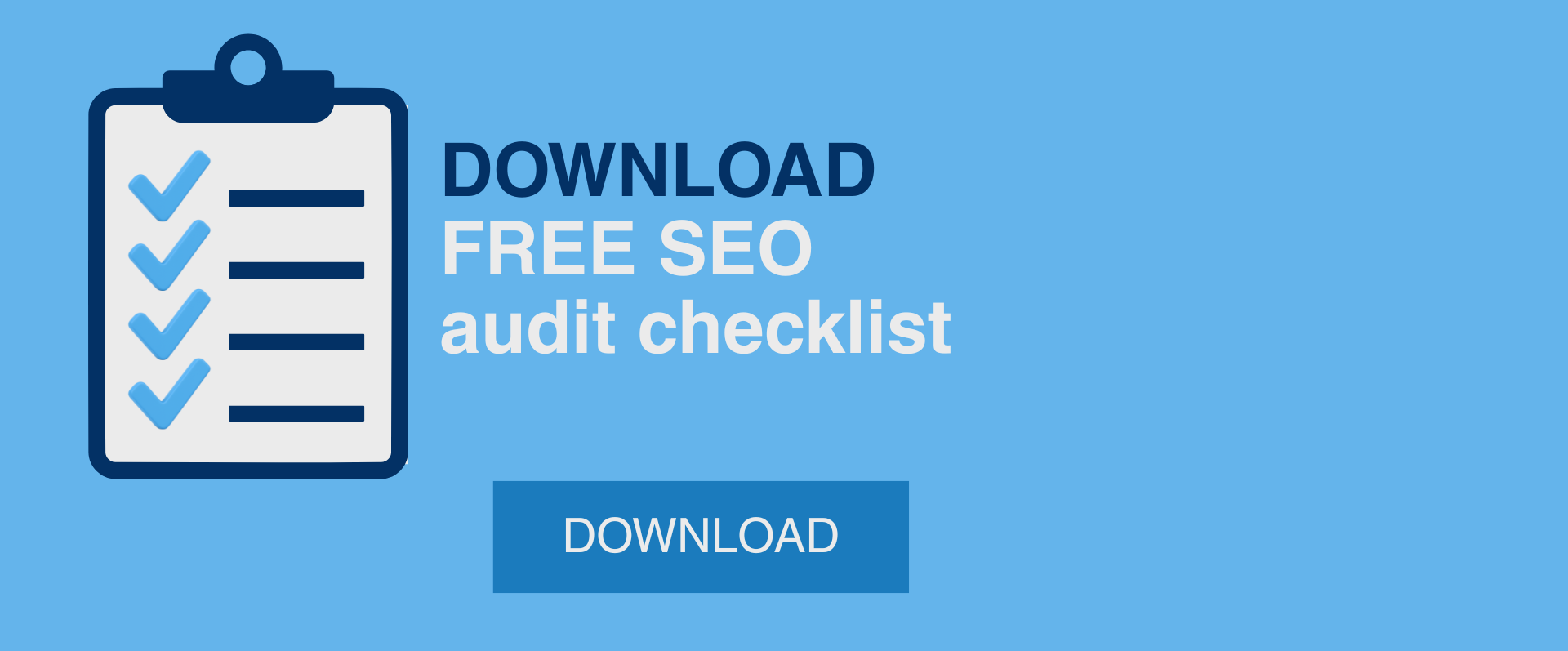SEO Audit Checklist for Small Business: A No-Fluff Guide to Getting Found Online
Your website is live. Your business is running. But you're not showing up on Google.
You're not alone.
Most small businesses build a site, add a few pages, and hope for the best. But search engines aren’t driven by hope. They’re driven by structure, speed, relevance, and signals that tell them your site is worth showing.
That’s where an SEO audit comes in.
In this guide, you’ll learn what an SEO audit is, how to do it yourself (yes, really), and which tools to use to spot quick wins and long-term improvements.
Let’s get into it.
What Is an SEO Audit?
An SEO audit is like a health check for your website. It finds what’s working, what’s broken, and where you can improve to get better visibility on Google.
It looks at:
Technical SEO (Is your site crawlable and mobile-friendly?)
On-page SEO (Are your titles, content, and structure optimized?)
Content (Is it clear, helpful, and up to date?)
Backlinks (Do other websites trust you?)
Local SEO (Are you showing up in local searches?)
As Semrush explains,"Conducting regular SEO audits is crucial for improving organic search visibility, increasing traffic, and maintaining competitiveness online."
Can I Do My Own SEO Audit?
Yes. You don’t need to be a developer or hire an agency to get started.
With the right tools and this checklist, you can run your own audit in a few hours. No code. No stress.
That said, if things get too technical, it's okay to call in backup. Think of this like cleaning your house: you can do it yourself, but sometimes it's worth bringing in a pro.
Complete SEO Audit Checklist for Small Business
We’ll break this down into six parts:
1. Technical SEO: Make Sure Your Site Works
This is the foundation. If Google can’t crawl your site, it can’t rank your site.
Check these items:
Site Speed: Use PageSpeed Insights to test how fast your site loads.
Mobile-Friendly Test: Check if your site works well on phones. (Google’s Mobile Test)
HTTPS: Your site should be secure with an SSL certificate.
Broken Links: Use tools like Screaming Frog or Ahrefs Site Audit to scan for 404s.
Indexability: Make sure your robots.txt file and sitemap are correctly set up.
Tools: SEOptimer, SEMrush, Ahrefs, RankMath, Screaming Frog
2. On-Page SEO: Clean Up Your Pages
Each page on your site should have a clear job. Titles, descriptions, and headers help Google understand what the page is about.
Audit the following:
Title Tags: Each page should have a unique, relevant title.
Meta Descriptions: Summarize what the page is about. Use up to 160 characters.
Header Tags (H1, H2, etc.): These break up your content and help search engines understand your structure.
URL Slugs: Keep them short and keyword-friendly.
Image Alt Text: Use simple descriptions for every image.
Internal Links: Link related pages together. (e.g., link your About page to your Contact page.)
For easy wins on metadata and titles, check out Tellwell's guide on on-page SEO.
3. Content: Help People, Not Just Bots
Google wants content that answers questions. So do your visitors.
Ask yourself:
Does your content answer real questions? (Use AnswerThePublic or Google’s "People Also Ask" box.)
Is it easy to read?
Are you using keywords naturally?
Are your pages updated regularly?
Are you telling a clear brand story?
Tip: Tellwell's storytelling guide shows how to build trust through content.
4. Local SEO: Show Up Where You Work
If you have a physical location or serve a region, local SEO is huge.
Check the following:
Google Business Profile: Is it claimed, accurate, and updated?
NAP Consistency: Make sure your name, address, and phone number match across all listings.
Local Keywords: Use phrases like "SEO help in Des Moines" or "plumber near me."
Get Reviews: Ask happy customers to leave reviews.
Local Directories: Make sure you're listed on Yelp, BBB, and industry-specific sites.
Use Tellwell's local SEO guide for location-based strategies.
5. Backlinks: Earn Trust from Other Sites
Backlinks are like online referrals. More quality links = more trust from Google.
Audit your backlinks:
Look for Low-Quality Links: These could hurt your rankings.
Build Links: Write guest posts, get local press, or list on directories.
Tip: One good backlink from a trusted site can be more valuable than 50 weak ones.
6. Analytics & Search Console: Measure What Matters
Set up and check:
Google Analytics: How much traffic are you getting? What pages are popular?
Google Search Console: Are there crawl errors? What keywords bring in traffic?
Goal Tracking: Are visitors signing up, buying, or contacting you?
Not sure what to look for? Tellwell's marketing plan blog breaks it down simply.
How Often Should I Do an SEO Audit?
Mini audit: Every month (check speed, links, local profile)
Full audit: Every 6 months (or after major site changes)
Emergency audit: After a drop in traffic or Google update
Think of it like brushing your teeth vs. going to the dentist. Small regular checkups prevent big issues.
Which SEO Audit Tools Should I Use?
You don’t need to pay big bucks to get started. Here are a few solid tools:
Google Search Console (free)
Google Analytics (free)
SEOptimer (cost-effective)
Screaming Frog (free option available)
Ahrefs (premium)
SEMrush (premium)
RankMath SEO Analyzer (cost-effective)
Ubersuggest (cost-effective)
Common SEO Audit Questions
-
Focus 80% of your efforts on high-impact basics (site speed, titles, content) and 20% on advanced stuff (schema, backlink detox).
-
If you’re doing it yourself, 2–4 hours for a basic audit. More if your site is big.
-
There’s no magic number, but aim for 75+ on tools like SEOptimer. More importantly, fix what matters.
-
Yes! Use free versions of Search Console, Ubersuggest, and SEOptimer to start.
-
Higher rankings, more traffic, and better conversions without paid ads. For many small businesses, it’s the best ROI marketing investment they can make.
Final Takeaway: Start Small, Stay Consistent
You don’t need to fix everything today.
Pick 3 items from this checklist and tackle them this week. Then do a quick review every month. SEO isn’t about overnight wins—it’s about stacking small improvements.
Want help getting started? Schedule a free 15-minute SEO check-in with our team.
Or just start by running your site through a free tool like SEOptimer. You might be surprised by what you find.
References

Author: Noah Swanson
Noah Swanson is the founder and Chief Content Officer of Tellwell.


